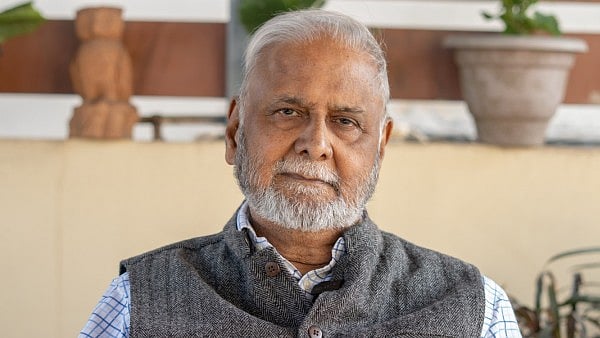
Jagdeep S Chhokar
Credit: Special Arrangement
New Delhi: For many, Jagdeep S Chhokar is the person an Indian voter turned to when they wanted to fight the political class to secure their votes and make their representatives accountable.
He wore not just this but several hats — that of an academic, engineer, lawyer, writer, conservationist, birdwatcher — in the 81 years of his life that came to an end at 4 am on Friday when his heart suddenly stopped beating. His body was donated to Lady Hardinge Medical College here.
His steely resolve steered the Association for Democratic Reforms (ADR), which he co-founded with his IIM-Ahmedabad colleague Trilochan Sastry and others in 1999, in the uncompromising fight for electoral reforms.
Whether it was the first battle for forcing candidates to submit affidavits on their criminal antecedence or financial details, scrapping of electoral bonds or a mechanism to verify EVM votes or the petition against the Special Intensive Revision in Bihar, the struggle had been relentless.
Activists and former Election Commissioners attest to his enduring spirit — former Chief Election Commissioner S Y Quraishi described him as a “crusader for clean elections and electoral reforms”, while activist Anjali Bhardwaj called him a “fierce crusader” dedicated to the cause of preserving democratic norms and institutions.
'More than an advocate for clean politics'
ADR said, “To those who knew him, he was more than an advocate for clean politics; he was a generous mentor, an incisive thinker, and a warm friend. He was a fearless and honest lone but the loudest voice in the room. Colleagues, students, and those who worked alongside him remember him as patient yet persistent, principled and relentlessly committed to public accountability.”
Born in 1944, he graduated in Production Engineering and Mechanical Engineering in 1967 and went on to get an MBA from Delhi University in 1977, PhD from Louisiana University in 1983 and LLB from Gujarat University in 2005. In between, he developed an interest in birdwatching and obtained a certificate in ornithology from the Bombay Natural History Society in 2001, five years before he retired from the IIM-A.
He joined Indian Railways as an engineer-manager and worked as an international marketing manager for four years. And in the mid-1980s, he joined IIM-A on deputation, and he would eventually quit the Railways in the 1990s.
It was in 1999 that he fully jumped into activism, with a focus on electoral reforms after a study of the nomination papers of the 1999 Lok Sabha elections of the Ahmedabad seat by Trilochan Sastry, which was shared with Chhokar and others, raised questions.
The nomination papers sought the bare minimum details of the candidate, and they felt it was inadequate for a voter to make an informed choice. Chokhar, among others, who would form the ADR, filed a petition in the Delhi High Court, which ordered that candidates should submit a sworn affidavit disclosing their financial details as well as criminal cases against them.
The Vajpayee government, whose appeal was rejected by the Supreme Court, took the ordinance route to nullify it even after the then President APJ Abdul Kalam returned it initially. However, the Supreme Court binned the ordinance later.
A keen watcher of electoral processes in the country, he has also been critical of the manner in which the Chief Election Commissioner and the Election Commissioners were appointed. He also locked horns with the Election Commission over changing rules not to allow the sharing of CCTV camera footage of the polling process.
Fight against electoral bonds
Chhokar also led the ADR in the fight against electoral bonds inside and outside courts, and eventually got it scrapped. His petition also resulted in verifying EVMs used in an election at the request of the runners-up.
The latest fight for Chhokar was the SIR in Bihar. The petition is being heard in the Supreme Court at present, but the last order was hopeful for the petitioners, as the court asked the Election Commission to accept Aadhaar as the 12th document, an argument Chhokar has been making from day one.
The ADR sums up his contributions: his “vision reshaped the way India thinks about elections and accountability. His absence leaves a void, but his example will continue to inspire all who strive for a stronger and more vibrant democracy”.
